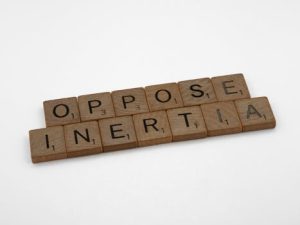Minimalist Living as a Strategy for Savings
Welcome to the world of minimalism – a lifestyle that is gaining popularity for its ability to improve mental and financial well-being. With the rising costs of living and the constant need to keep up with the latest trends, many people are feeling overwhelmed and overburdened by their possessions. But what if I told you that living with less could actually lead to more – more savings, more happiness, and more freedom? In this article, we will explore how minimalist living can be an effective strategy for saving money and achieving financial stability.
The Concept of Minimalism
Before we dive into the benefits of minimalist living, let’s first understand what it means. At its core, minimalism is about simplifying your life by getting rid of unnecessary possessions and focusing on what truly matters. It’s a deliberate and intentional way of living that involves decluttering, organizing, and prioritizing.
Contrary to popular belief, minimalism is not about living with bare walls and owning only a handful of items. It is about being mindful of the things you own and consuming in a more intentional manner. It’s not about deprivation, but rather about living with purpose and finding joy in the things that matter most.
The Link between Minimalism and Savings
One of the main reasons people are drawn to minimalist living is the potential for financial freedom. By living with less, you can significantly reduce your expenses and save more money. Here’s how:
1. Reduced Spending
Minimalism forces you to question your spending habits. You become more aware of what you are buying and why. This mindfulness can help you identify areas where you are overspending and make necessary changes. For example, do you really need that designer bag or can you make do with what you already have? By avoiding unnecessary purchases, you can save a significant amount of money.
2. Lower Maintenance Costs
With fewer possessions, you’ll have less to maintain and repair. From appliances to clothes, everything we own requires some level of care and attention. By reducing the number of items you own, you’ll also reduce the time and money spent on maintenance, allowing you to save more in the long run.
3. Lower Housing Costs
A key component of minimalist living is downsizing and living in a smaller space. Moving to a smaller home or apartment can lead to significant savings on rent or mortgage payments. Additionally, smaller spaces require less cleaning, heating, and lighting, resulting in lower utility bills.
How to Incorporate Minimalism into Your Life
Now that you understand the potential for savings through minimalist living, you may be wondering how to get started. Here are some tips:
1. Declutter Regularly
The first step in minimalist living is getting rid of unnecessary possessions. Make a habit of decluttering your space regularly, whether it’s once a month or every few months. This will help you maintain a clutter-free and organized living environment.
2. Prioritize Experiences over Possessions
Instead of focusing on acquiring material possessions, prioritize experiences like traveling, spending time with loved ones, and pursuing hobbies. These are the things that will bring long-term happiness, rather than temporary satisfaction.
3. Buy Quality Over Quantity
When it comes to purchasing items, opt for quality over quantity. Invest in well-made, durable items that will last longer and save you money in the long run, rather than constantly buying cheaper, lower-quality items.
4. Borrow or Rent When Possible
If you only occasionally need an item, consider borrowing or renting instead of buying. This could apply to items like tools, books, or formal attire. Not only will you save money, but you’ll also avoid cluttering your living space with items you rarely use.
The Bottom Line
Minimalist living is more than just a trend – it’s a way of life that can have a positive impact on your finances. By focusing on living with less and finding joy in the essentials, you can reduce your expenses, increase your savings, and ultimately achieve financial stability. So why not give it a try and see the difference it can make in your life?











